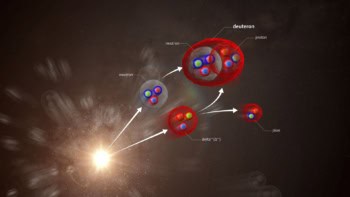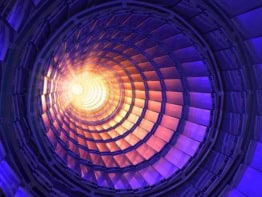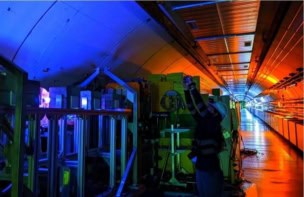Astronomers and particle physicists in the UK have presented their funding agency, the Particle Physics and Astronomy Research Council (PPARC), with a long - and expensive - list of priorities for the next 10 to 20 years. With the top priorities budgeted to cost a total of £124m over the next three years, PPARC must either convince the government to increase its current budget of around £200m, or make some difficult decisions. At an event to launch the council's long-term science review earlier this week, chief executive Ian Halliday admitted that "PPARC will have a pretty rough year." The priorities have been identified by four panels that covered particle physics, particle astrophysics, astronomy and solar system science.
The particle physics panel identified three projects related to the Large Hadron Collider – a 14 TeV proton-proton collider that is due to start in 2005 at CERN – as top priority. These were a computational grid to handle the data from the LHC, an increase in human resources for experiments, and increased support for theory. Accelerator R&D for a proposed neutrino factory was the other top priority. The second group of priorities included accelerator R&D for a future linear collider and further R&D for new technologies and detectors.
In the field of particle astrophysics, a series of missions and experiments to study the cosmic microwave background, gravitational waves, dark matter, cosmic and gamma-rays, neutrinos and black holes have been identified as top priority.
In astronomy the top priorities included the Atacama Large Millimetre Array, participation in the European Southern Observatory (of which the UK is not a member), involvement in the Next-Generation Space Telescope, further development of the SCUBA detector, R&D for new technologies and facilities, and increased human resources. Ian Halliday is due to fly to Munich next week to start official discussions about the UK joining ESO. He said he felt there was “serious chance of success”.
Priorities in solar system science fell under two headings: understanding the origins and evolution of the solar system, and understanding the influence of the space environment on Earth.



